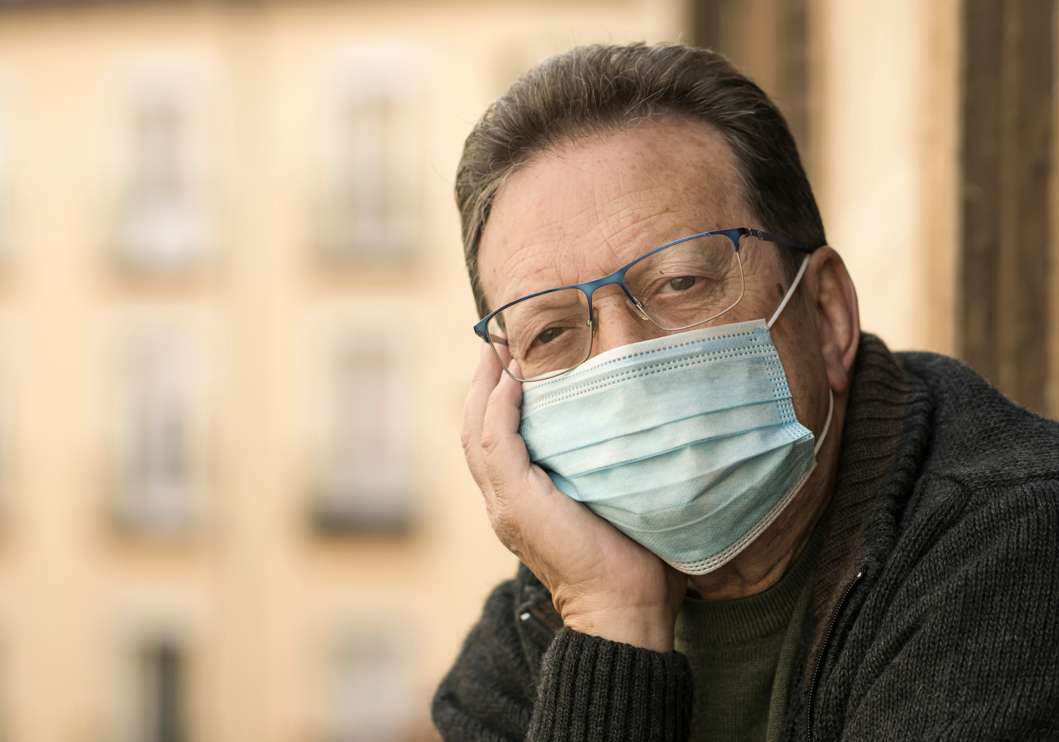Researchers Find Enduring Effects of CBT Anxiety Therapy
Study Shows Promise for Preventing Anxiety During High-Stress Global Events

A new study found that people with anxiety who had been treated with therapy before the COVID-19 pandemic were less likely to experience increased anxiety during the pandemic than the general population.
The study, Response to Anxiety Treatment Before, During, and After the COVID-19 Pandemic, published March 13 in PlosOne, suggests that learning cognitive and behavioral skills to cope with anxiety may shield people against anxiety during high-stress global events.
Rates of anxiety rose sharply during the pandemic, with the World Health Organization estimating a 25% increase in 2020 alone. One large study with over two million adults found that 35% had significant anxiety during the pandemic. In addition, it is now well known that having a history of anxiety prior to the pandemic was associated with having anxiety during the pandemic.
Steven Pirutinsky, PhD, assistant professor, Graduate School of Social Work at Touro University and David Rosmarin, PhD, ABPP, a clinical psychologist at McLean Hospital, and associate professor of psychology at Harvard Medical School wanted to examine if cognitive behavioral therapy (CBT) was as effective during the pandemic, as it was before and after the pandemic. CBT focuses on helping people learn mental and behavioral skills and strategies to manage anxiety.
They evaluated CBT treatment in patients before, during, and after the pandemic, and found that responses to the therapy were equally effective during all the periods. According to the study, subjects in all groups experienced rapid improvement in anxiety symptoms lasting roughly 25 days, followed by a longer period of slower improvement that slowly trailed off over about 75 days.
“We were surprised. We thought that during the height of the pandemic and before vaccines were available, patients would show increased anxiety and that therapy would be less effective but that was not the case,” says Pirutinsky.
But what was even more surprising to the researchers was that those who had been in therapy before the pandemic did not experience an increase in anxiety during the pandemic (compared to the 25% increase in the general population).
“There is a widespread misperception that anxiety is a risk factor for people crumbling and not being able to function,” said Rosmarin. “However, when people receive evidence-based psychotherapy and learn skills to cope, they can become more resilient than those who have never had anxiety at all.”
According to the study coauthors, this period of time was marked by significant mental distress due to intense uncertainty, strain, and social isolation. They had hypothesized that anxiety would worsen for everyone during this initial acute phase of the pandemic. But it did not for those who had been taught ways of coping with anxiety.
“Our findings optimistically suggests that the acquisition of psychosocial skills--such as recognizing and understanding your feelings, learning how to relax your mind and body, challenging negative thought patterns, and confronting rather than avoiding the source of your anxiety--is a key predictor of mental health, wellbeing, and resilience. Those who acquire such skills can benefit, even when facing significant life stressors,” said Pirutinsky.

